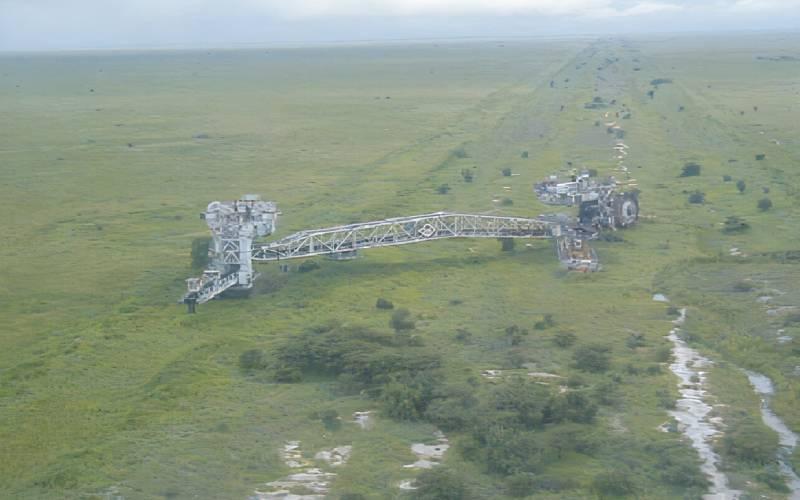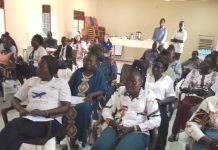Africa-Press – South-Sudan. Dredging of rivers in the Upper Nile and Bahr-El-Ghazal regions, notably the Sudd wetland, has been challenged by a legislator in the Transitional National Legislative Assembly.
The lawmaker’s reaction comes after the governor of Unity State got the machinery to dredge River Naam in Bentiu a week ago.
Bol Joseph Agua in an exclusive interview with The City Review stated that dredging rivers across the country would cause the Sudd wetland to dry up. He further said that the dredging will have an impact on the Sudd’s aquatic fauna and flora.
Bol has called the dredging of the river in Bahr-El-Ghazal and the Jonglei Canal a holocaust and urged the country’s leadership not to allow it to continue, claiming it endangers the lives of future generations.
“I would like to categorically state that the Sudd region, the area that is keeping the lifeline of this country, is not an entity of the Republic of South Sudan alone, it is a global entity that should be protected by all the organizations that are related to climatic change.”
“The water flows much to Egypt and our Sudd will get dried up. When it dries up, we will lose our fauna and flora, the animals and plants in the Sudd. They are for the good of this country, ” Bol stressed.
Flooding menace
The politician said that the floods that have ravaged the country for the past three years were caused by humans rather than natural disasters, alleging that the people of South Sudan had been duped. He added that the Nile River’s outflow is caused by backflow from Egypt and an overflow of water from the Nile’s source in Uganda, which separate the Sudd region’s communities.
“Dredging is not a priority. There is a solution to the floods. The solution is here: if we dig a big dam like the Ethiopian Renaissance Dam, we will even need more than Egypt needs as a country so that we can keep our hydroelectricity running, we can do our irrigation scheme, and can produce food for ourselves. “
“We have had issues before with oil. Now oil has become a different thing. We are seeing that even the water is presold. If the water is presold, this is an issue we need to talk about as a nation.
“Who is that highest bidder that has taken the water and we are giving that person the freedom to move in with equipment without even people of South Sudan being made aware?” the lawmaker posed.
The public and government officials have had mixed reactions to the dredging of rivers and the digging of the Jonglei Canal, but a government spokesperson told the media last month that what was approved was the ministry of water resources and irrigation’s policy for the ministry to carry out its activities.
Makuei emphasised that anyone writing about the Jonglei Canal should do it from a point of fact rather than an opinion.
“Up to now, the issue of the Jonglei Canal has not been discussed by the cluster not even the government it is not yet presented up to this time what was presented here was the overall policy of the ministry of water resources and irrigation for the control of water and for availing water to other areas where there is no water it has nothing to do with Jonglei canal,” Makuei said.
In a separate move, the cabinet has approved a budget for the ministry of water resources and irrigation, which will be included in the new budget for the ministry’s implementation.
The cost of implementation was estimated to be $28,233,714; this amount was supposed to be within the ministry’s budget for this year, and the cabinet approved payment of this amount to the ministry so that it could operationalize its projects for this year.
“The operation of this project is actually for the purchase of the equipment that is needed for the ministry in order to enable it to conduct its functions and duties in terms of development of water sources like dredging of the rivers and construction of mini dames for the reservation of water,” he explained.
For More News And Analysis About South-Sudan Follow Africa-Press






